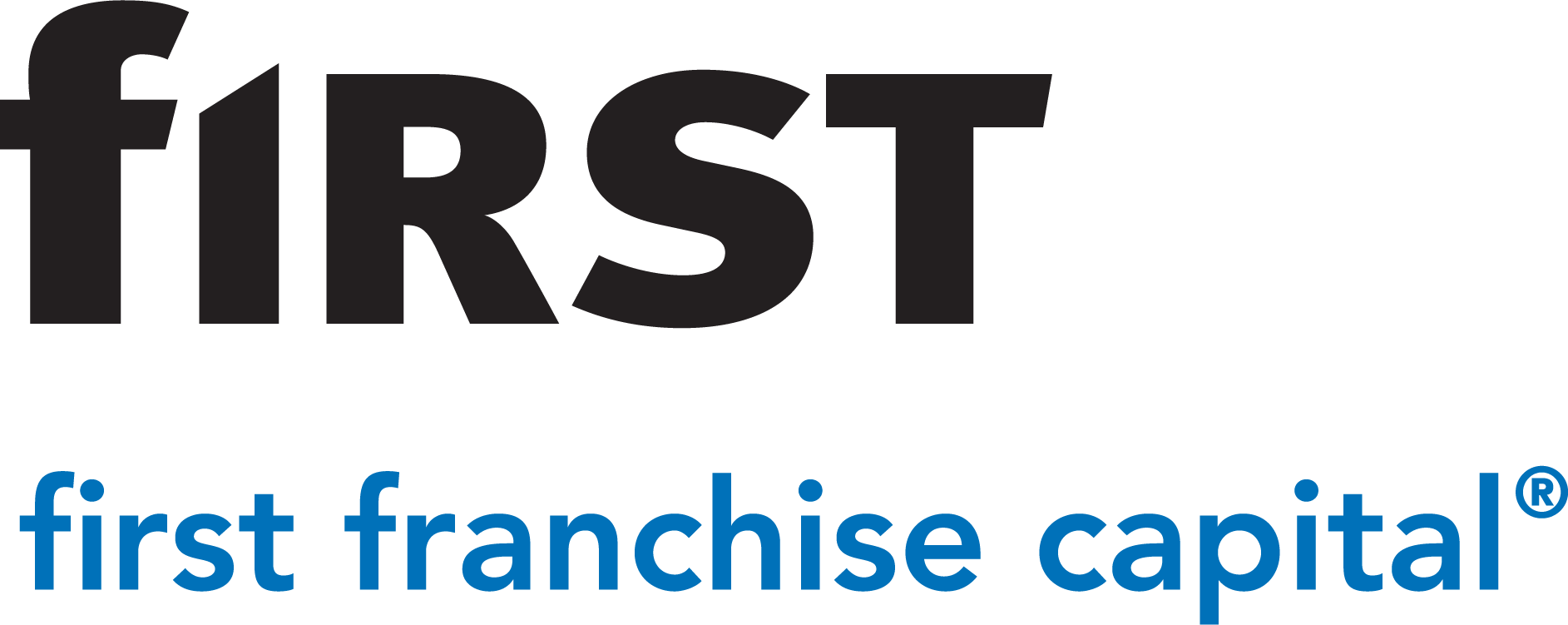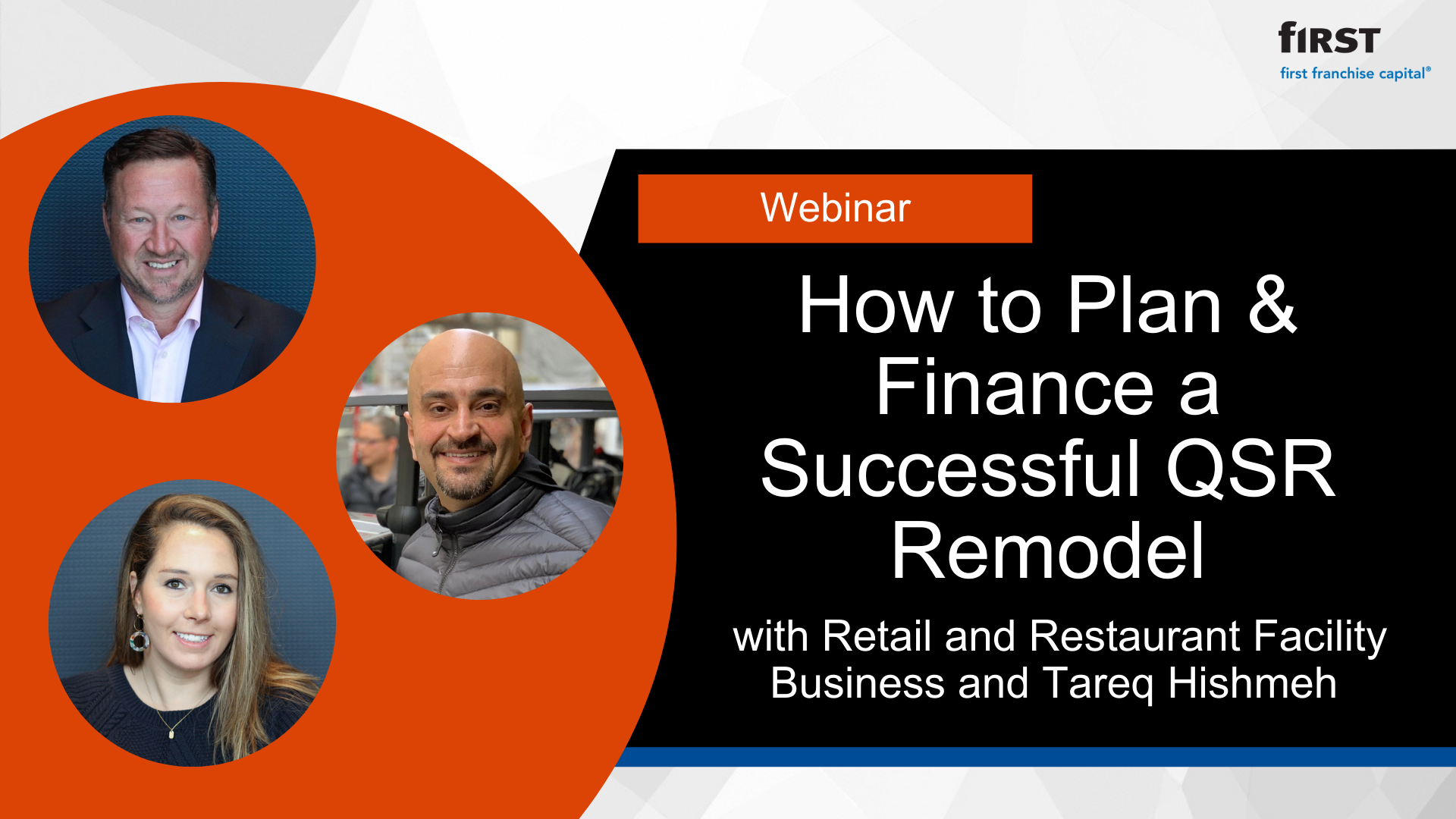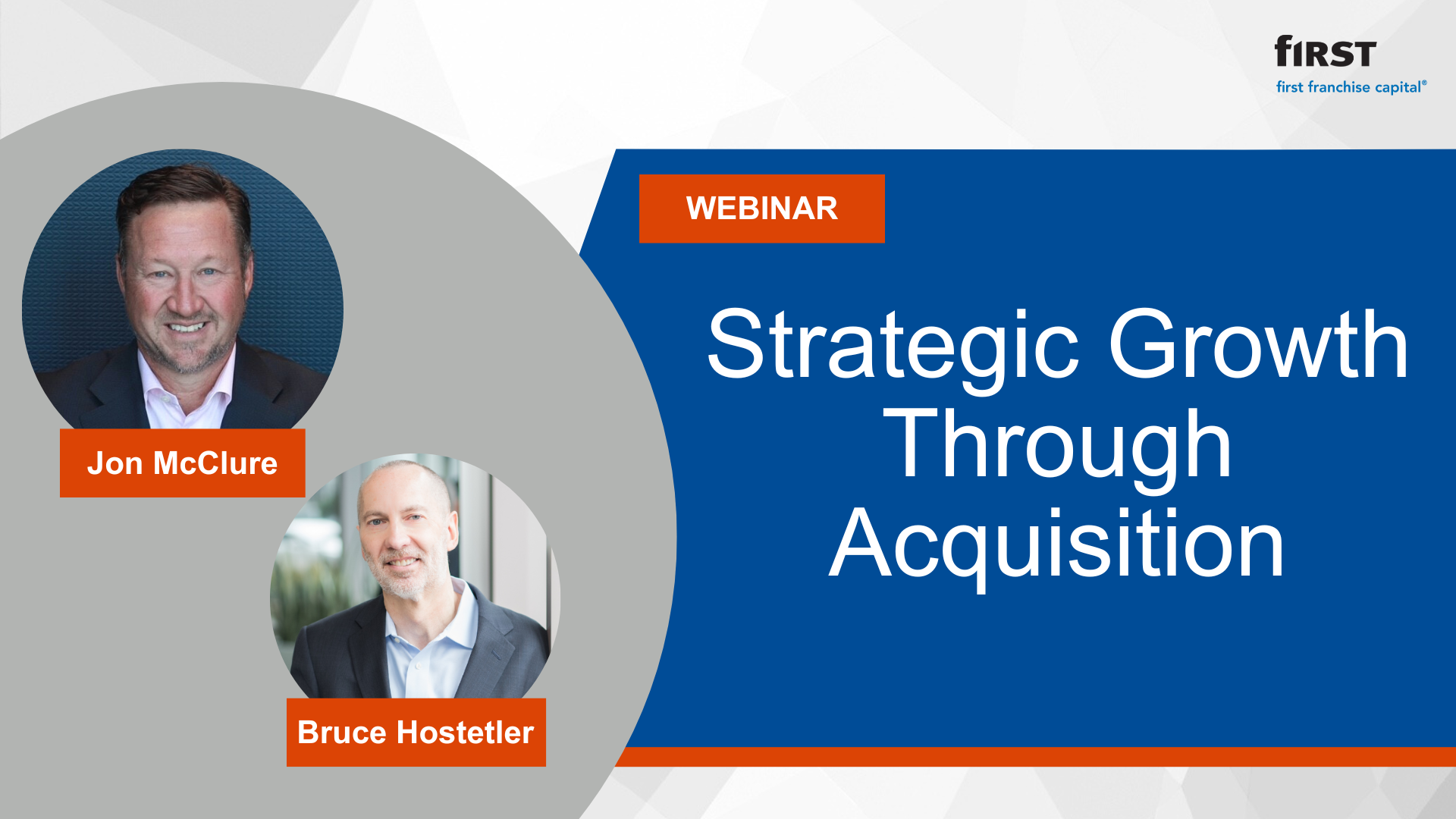Potential Impacts of the Inflation Reduction Act
- 0.5
- 1
- 1.25
- 1.5
- 1.75
- 2
Bridget Haight: Hi everyone, and thank you for joining us today. I am Bridget Haight, host and moderator for Oak Street Funding Webinars and Podcasts. Today, I am happy to be joined by Rick Dennen and Steve Blake. Rick is Chief Corporate Banking Officer at First Financial Bank, which includes being CEO of Oak Street Funding and First Franchise Capital. Steve is a principal with Somerset's Dealership Team and is a member of the firm's tax technical committee, where he focuses his time on legislation, mergers and acquisitions tax, strategic planning, and tax compliance. Rick and Steve will discuss the Inflation Reduction Act and the potential impacts it could have on the market, our borrowers and business owners. Rick, Steve, thank you for joining us today.
Rick Dennen: Thanks Bridget. Welcome Steve.
Steve Blake: Yeah, thank you everybody for having us. I'm excited to be a part of this.
Bridget Haight: Great. Well, I'm just going to start right in. We received a lot of questions from those listening. So we received questions about the specifics of the act, including questions about the book, minimum tax, net operating losses and questions about energy such as electric vehicles. Can you take us through all of that just briefly?
Steve Blake: Yeah, sure. So the Inflation Reduction Act, which was signed into law last week, includes a number of tax provisions, including tax credits and what they call revenue raisers, so additional taxes. We'll get into some of the different provisions here. But at a high level, there are a number of additional taxes on what are considered large companies or wealthy taxpayers. And then those are then allowing tax credits for some of the less wealthy taxpayers among us.
Bridget Haight: Okay. So that leads me to ask the follow up question, Steve, about the Book Minimum Tax.
Steve Blake: Right.
Bridget Haight: Could you give us an overview of that?
Steve Blake: Yeah, so the Book Minimum Tax has been in the news a lot, so I'm sure a lot of people have questions. But off the bat, I would say most taxpayers are not going to be subject to this tax. There was an analysis done this week that there's roughly 150 companies in the United States that are going to be subject to this tax.
Bridget Haight: Okay.
Steve Blake: It's your companies that make more than a billion dollars a year. So it's your McDonald's corporation, your Amazon, Walmart, those types of companies. Ford, GM that are the largest companies in the country that are going to be subject to this tax. So it's not going to affect most of us, but it will affect us in the fact that those companies are going to have to pay that additional cost and most likely going to be increasing their prices to us and consumers.
Bridget Haight: Got it.
Rick Dennen: Its the billion revenue? Is that the threshold or is the billion net income?
Steve Blake: So it's net income, but it's adjusted net income. So originally the bill was based on just book income, whatever your book income was, but they've made a number of adjustments because when the bill was first analyzed, it was impacting manufacturers very significantly. Almost 50% of the revenue increases were going to be from manufacturers. So there have been some adjustments. They now do it based on what's called adjusted book income. So they're still allowing tax depreciation, which is where a lot of these companies lower their tax rates to begin with anyway.
Rick Dennen: From all their CapEx.
Steve Blake: Yep. Yeah, exactly. So any company that's capital expenditure heavy, they're still going to be able to take, for example, bonus depreciation and lower that book income. And the billion dollars is a cliff. It doesn't phase in the new tax. So if you're at a billion dollars or less, there's no tax.
Rick Dennen: So there's two thresholds, above and below.
Steve Blake: Yep.
Rick Dennen: Yeah.
Steve Blake: If you're above the billion dollars, you're subject to the 15% minimal tax.
Rick Dennen: Wow.
Bridget Haight: Okay. So Rick, I do have a question for you. Do you foresee any trip covenant ratios due to the current market and what is your general outlook on borrowing in the next six to 12 months?
Rick Dennen: So two separate questions there on the trip covenants. Obviously we're watching a lot on cost of good soul. And the inflationary costs that you see coming from energy as goods are being produced, food products, things like that, as that stuff goes up, our customers typically, how much are they able to pass on to the customer?
Bridget Haight: Right.
Rick Dennen: We talked about one in the optometry industry earlier, but I think there's certain industries like that, that have some price elasticity to be able to charge those and others that don't, and it's the ones that don't have that ability to pass on those costs that I think potentially their margin shrink. Can they reduce their costs other way? Maybe through headcount and things like that, lower production. Or are they just getting out? But a lot of that really comes to how responsive they are and how much in tune they are with their financials. Do they have good financial reporting, things like that. So everybody's watching that stuff real close and our customers right now are not tripping those because of those things, but certainly doing a lot of the sensitivity testing. And if it continues, I think there will be some.
Bridget Haight: Okay.
Rick Dennen: So the second part of that question on the borrowing outlook, I don't really think that's going to change. The analysis that a bank is going to do when a customer comes in for a loan is the same type of work that it was done before.
Bridget Haight: Okay.
Rick Dennen: But adding that sensitivity testing to it. So if costs of good sold go up another 10%, another 15, if interest rates go up another five, 10, 15%, what is the impact on profitability? And it might be that we're adjusting covenants accordingly on a low lever transaction. On a high lever transaction, it just may be that they can't borrow as much money. But certainly looking at this stuff, its heightened sensitivity for everybody.
Bridget Haight: Yeah, sure. Steve, back to you. To add to the things business owners should be doing or emphasizing, will the 1% tax on stock buybacks influence companies to slow purchases and increase other types of distribution like dividends?
Steve Blake: Yeah, I think so. I think there are a lot of economies out there looking at this provision. So what you're talking about is on stock buybacks from large publicly traded corporations where they'll buy back their stock as a way of getting capital gain treatment on income to their owners rather than ordinary income.
Bridget Haight: Okay.
Steve Blake: So it's just a lower tax rate. Part of this bill provides a 1% tax on those transactions. But again, there are thresholds, like the billion dollars with the book minimum tax, with this one it's a million dollars of buybacks in a year.
Bridget Haight: Okay.
Steve Blake: So it could slow down companies if they've been doing more than a million dollars in a year, they might slow down to less than a million dollars a year to avoid the tax, which could cause them to increase dividends and, or increase ordinary compensation if their owners work in the business.
Bridget Haight: Okay. Got it.
Rick Dennen: A million dollars really isn't that high of the threshold though. When you think about public companies...
Steve Blake: Yeah. Not for a public company.
Rick Dennen: A threshold for a public company, call it a billion dollars in market cap, to buy back a million is almost nothing.
Steve Blake: Right.
Rick Dennen: You know what I mean?
Steve Blake: Right.
Rick Dennen: As the equity markets are down, it certainly is a good strategy that's been deployed in the past. It probably... It's just an extra 15%.
Steve Blake: Right.
Rick Dennen: Not big dollars.
Steve Blake: Right.
Bridget Haight: So we did have another question for business owners that came in specifically about selling a practice during the current market. So if somebody is planning to sell their practice, does the act affect capital gains and taxes for business owners?
Steve Blake: So that's a great question. So originally this bill, which is now called the Inflation Reduction Act was actually the build back better bill that was being discussed a lot last year that included a lot of tax rate increases for individuals, for capital gains in various sectors. They've now renamed it, the Inflation Reduction Act. And as part of negotiating with Manchin and Senator Sinema, they've removed a lot of these provisions in order to get them to agree to vote for it. So the increases in the capital gains rates, the increases in all the tax rates, those are all now gone and they are not part of this act. So when it comes to mergers and acquisitions, it shouldn't really have a tax impact for them as a result of this bill.
Bridget Haight: Okay. Rick, did you have anything to add to that?
Rick Dennen: No, I totally 100% agree with that.
Bridget Haight: Okay.
Rick Dennen: And we've talked in other series, other webinars that we've done, just the amount of capital that's out there. And I go to these investment banking conferences and it's just, they show the stats on the number of transactions year after year. And it's like, it's a record year. They won't continue next year. And certainly in the insurance industry, they've been saying that for eight or 10 years.
Bridget Haight: Oh wow.
Rick Dennen: And I think the last conference I went to, they basically said, we're not going to try to predict that anymore. Because we've been predicting less and less transactions and they keep being more and more. So I just think there is a lot of capital in the market. I think the tax rates for these transactions is relatively low and M& A activity is still going to be very robust.
Bridget Haight: Okay.
Rick Dennen: And I'm bullish on where that's going in the future.
Bridget Haight: That was my next question.
Rick Dennen: But it may not be record periods, but it's going to be up there continually.
Bridget Haight: Right Okay. So to follow that, how will that affect taxes with middle class and retirees? Steve, I'll go to you.
Steve Blake: So, yeah, that's a great question. A lot of these things that we've talked about are related to large corporations. A lot of those provisions that would've affected the middle class and retirees have been removed in order to get, Senators Manchin, and Sinema to vote for the bill. So a lot of those provisions are no longer here. But where again, it will impact them is these corporations that have to pay these additional taxes are going to pass that cost on. So it's not going to necessarily be a tax cost to the middle class and the retirees. And there are some provisions that are coming into play that we'll get into later, but it's going to be a cost of those goods and services that we purchase are going to increase.
Bridget Haight: Okay. So then Rick, would you recommend that business owners start their retirement or their succession planning earlier than normal during these times? Or are there other things that they should do to best prepare to exit successfully?
Rick Dennen: I don't think this speeds up the time when you talk to it, but certainly as we've talked, they need to be thinking about that stuff all the time.
Bridget Haight: Yeah.
Rick Dennen: And I think part of what I've seen during the pandemic is business owners wanting to stick around longer, to be honest with you. It may be they're working in Florida, California, or things like that. And it can be a slower transition.
Bridget Haight: Okay.
Rick Dennen: But you still need to have the same disciplines, the thought process, the control, the training and development of the people underneath you, I think, to have a good, successful transition. And that's always, that's just part of business.
Bridget Haight: Right.
Rick Dennen: But it's almost the opposite. Hey, I want to stay. I talked to a business owner last night in New York and he said, you know what? We bought a house in Miami and we've got people in the business that can run it. I can run it from there. I can still be involved and I'm just going to slow down my transition to other people.
Bridget Haight: Great. Yeah.
Rick Dennen: And stay healthy and still be engaged in the business. And I think a lot of people are really seeing that.
Bridget Haight: Sounds ideal to me.
Rick Dennen: Yeah.
Bridget Haight: So Steve, do you have any advice for business owners who are navigating tax changes and planning for an exit?
Steve Blake: Yeah, definitely. We work a lot with mergers and acquisitions with a lot of our clients.
Bridget Haight: Okay.
Steve Blake: And so we always like to have about a three to five year lead time. So if they're looking to transition out of their business, there are certain things that we want to get in place first, not only to maximize the value of their business, but also because of lending requirements. And Rick you can probably explain this a lot better than I can, but I know I've gone through some transactions now where as part of funding the purchase, we've got an internal transaction with the general manager and as part of funding that purchase, the lenders want to see that general manager have some ownership and actually be running the business for a period of time. So we actually have a five year plan that we've had to put in place in order to step them up in ownership with an eventual purchase of the remaining shares. And all of that is simply because of the lending situation and trying to get them to be able to fund it.
Rick Dennen: We've seen these transactions over the years where you're turning it over to existing management or to an outside party.
Bridget Haight: Okay.
Rick Dennen: And if you think about that, there's less risk with turning it over to existing management.
Bridget Haight: Right.
Rick Dennen: Assuming that they've been in the role, they've been running the business and it's just simply, they're stepping up to a bigger and bigger role. They're basically getting ownership now, which they didn't have before, but the role doesn't change. When you get an outside party that's coming in to buy a practice. Well, you've got transition risk there is what we call it.
Bridget Haight: Sure.
Rick Dennen: So how are they going to run the business? How is that going to impact the existing culture and the people?
Bridget Haight: Yeah.
Rick Dennen: If they get a huge turnover in people and you've got people from the outside trying to then run a business, that's where your risk and your losses are going to occur in that stuff. So you really... To have that succession to the existing management team, are deals we really love to fund.
Bridget Haight: Great. So Steve, we're going to do some rapid fire tax questions. Are you ready?
Steve Blake: Yeah. Hit me.
Bridget Haight: All right. Number one. Does the Inflation Reduction Act include any implications for net operating losses?
Steve Blake: Yes, it does. And in fact that goes back to the Tax Cuts and Jobs Act that limited the amount of net operating losses people could take. So these are individuals taking these losses and if they've got a flow through business that creates a loss, typically you'd be able to use that to offset other income, 100%, no limitation. The Tax Cuts and Jobs Act came in and provided a limit at the time, I think it was 250,000. So any loss above that dollar amount you could not take, you just had to carry forward. And I've got clients that have been carrying forward losses for years because they can't take all of them. Just like a lot of provisions in the Tax Cuts and Jobs Act that was set to expire in 2025.
Bridget Haight: Okay.
Steve Blake: That's now been extended to 2028. So those people have those large losses that can only take a limited amount every year are going to have to continue to carry those forward for at least an additional three years.
Bridget Haight: Okay. Thank you for that. Number two. How are research and experimentation expenses impacted by the act?
Steve Blake: Yeah, so that is a great question. So we were hoping to get a change in the law because provisions in the law now change the way that those expenses are deducted.
Bridget Haight: Okay.
Steve Blake: And we were hoping to get that changed. I know especially a lot of the companies that do research and development credits, were really pushing to get this area of the law changed. That was actually taken out of this bill. So we're staying with the current law. The current law says that starting in 2022, so the year we're in right now, 2022, those experimentation expenses are no longer currently deductible. You have to capitalize those and amortize those. And if those expenses incur outside the United States, that's a 15 year period that you have to pick up those deductions.
Bridget Haight: Oh wow.
Steve Blake: If they're in the United States, it's a five year period. You have to pick up those deductions. So a huge hit to cash flow by increasing taxes by not allowing those deductions 100% upfront.
Bridget Haight: Okay. Thank you. Number three. Was the state and local tax itemized deduction limitation changed by the act?
Steve Blake: Yeah. So that's a great question. It was originally part of the act, but again, one of those provisions that got changed in order to get the votes to pass the act.
Bridget Haight: Okay.
Steve Blake: So that $10,000 cap that we hear a lot about is still in the law and there are no changes to it. So we're still going to have that itemized deduction limitation. So a lot of our flow through business owners that have significant state taxes, they're limited to a $10,000 deduction, even though they could be paying hundreds of thousands of dollars in taxes. But one benefit is the IRS recently has approved and allowed states what they call salt cap workaround.
Bridget Haight: Okay.
Steve Blake: And so the company can actually make an election with the state and pay the taxes at the company level, which then just becomes part of the flow through income to the individual owners.
Bridget Haight: Okay.
Steve Blake: So they've already gotten the deduction, it's just part of the business income. And some states, depending upon which state they'll allow that as a flow through deduction to the state return, or they'll add it back or they'll allow a credit against your taxes on your personal return for what the company pays. So every state's a little different.
Bridget Haight: Yeah.
Steve Blake: So depending upon what state you're in some states haven't passed yet, I think there's 33 right now that have, and so most states, Indiana not being one of those states, but most states have passed some provision that kind of gets around that $10,000 limit.
Bridget Haight: Oh my goodness. Okay. So number four, what are the changes to the electric vehicle credit?
Steve Blake: Oh, so that is a great question. So it's no longer called the electric vehicle credit. They've completely gotten rid of those provisions and institute new provisions, it's called the clean vehicle credit.
Bridget Haight: The clean vehicle.
Steve Blake: Yeah. So there's a clean vehicle credit and there's now a previously owned or pre- owned clean vehicle credit.
Bridget Haight: Okay.
Steve Blake: So they've really changed the way this works. And in the past there really were no income limits. You could get at $7, 500 credit if the vehicle met all the rules, with really no income limits, but they've changed the rules on us. So with the new vehicles, there's an income limit for married finally joint of $300,000. So if you make more than $300,000, you cannot get the credit. And again, this is a cliff. If you make less than $300,000, you get the full credit. If you make $300,000 or more, you not get the credit at all.
Bridget Haight: Okay.
Steve Blake: So very much a cliff there. And there are limitations on the cost of the vehicle. So you're nice brand new Tesla that costs over a hundred thousand dollars, no longer getting a credit for that. So for, I think it's SUVs, vans and trucks, it's an $80,000 limit on the cost of the vehicle. If it's anything other, so like a sedan or a normal Tesla, I think it's a $55,000 limit. So any vehicles that cost more than that, there is no credit.
Bridget Haight: Good heavens.
Steve Blake: And then on the used vehicles, the income limitation married filing joint is $150,000.
Bridget Haight: Okay.
Steve Blake: So again, cliff, just like the other rules.
Bridget Haight: Yep.
Steve Blake: And the cost of the vehicle has to be less than $25,000.
Bridget Haight: Okay.
Steve Blake: So much lower cost. In fact, I looked this morning just to see if you can even buy a used electric vehicle for less than that.
Bridget Haight: Yeah.
Steve Blake: And it's virtually impossible.
Bridget Haight: You can't. We've been looking. You can't.
Steve Blake: If you go back to about a 2015 Spark, you might be able to find one for less than $25,000. So probably not a lot of vehicles are going to get these credits.
Bridget Haight: Yeah.
Steve Blake: And then along with the used vehicle credit, there are a lot of rules. So once the act passes, which it was signed into law last week, per vehicle, you can only get one credit. So no selling it around to different people and everybody getting the credit.
Bridget Haight: Okay.
Steve Blake: You can't be a dependent. So you can't use one of your kids to buy the vehicle for you and get the credit. So they can't be a dependent and get the credit. And you personally can only get the credit once every three years. So you can't just buy a new used vehicle every year and get the credit.
Bridget Haight: Okay.
Steve Blake: So a lot of changes there. And then I know, I think there were some questions about commercial electric vehicles. So there is a new credit for commercial electric vehicles.
Bridget Haight: Okay.
Steve Blake: Which could be pretty significant, but again, very limited in who can apply for it.
Bridget Haight: Right. If you've got a fleet of electric vehicles.
Steve Blake: Yeah. So the credit is, I think it's, I don't if the number's right in front of me, but I think the credit was $7,500 if the vehicle was less than 14,000 pounds.
Bridget Haight: Okay.
Steve Blake: And if it's 14,000 pounds or more, it's a $40,000 credit. So pretty significant credit.
Bridget Haight: Yeah.
Steve Blake: But there are a lot of limitations that come into play. And yes, there are actually electric vehicles over 14,000 pounds. Tesla makes an electric semi for example.
Bridget Haight: Okay.
Steve Blake: So definitely vehicles out there. However, it's limited to, it's a percentage of the incremental cost increase of the electric vehicle over a normal diesel semi for example.
Bridget Haight: Okay.
Steve Blake: So if a normal diesel semi is only a hundred thousand dollars, but the electric version is $115,000. You're limited to that $15,000.
Bridget Haight: Okay.
Steve Blake: So you can't get the full $40,000. So the cost of the electric has to be so significantly more than the cost of the diesel version in order to really maximize the credits.
Bridget Haight: I think it was really unfair to call this rapid fire.
Steve Blake: Yeah.
Bridget Haight: You have too much information, Steve. Okay. Number six. How is the alternative fuel refueling property credit changed by the act?
Steve Blake: Yeah. So that's a great question too. And sorry, this is going to be a long minute answer as well.
Bridget Haight: That's okay.
Steve Blake: So that one changed pretty significantly in that it's now, again, there are a lot of limitations, so it's limited to certain census tracks that are rural or low income. So for example, you can't put one around Indianapolis area, for example, and get the credit.
Bridget Haight: Okay.
Steve Blake: If you want to go outside of Indianapolis, you're now in a rural area, you can get the credit if it meets the criteria.
Bridget Haight: Okay.
Steve Blake: It also changed in the fact that in the past you can only have one credit per fueling station at a location. Now it's per credit per fueling station at a location. So however many fueling stations you install, you can get a credit for each and every one of those.
Bridget Haight: Oh, all right. Great. Okay. And then the last question, how does the book minimum tax created by the act work?
Steve Blake: So, yeah, we talked about this a little bit earlier.
Bridget Haight: We did.
Steve Blake: But it's essentially, it's not book income, it's adjusted book income.
Bridget Haight: Okay.
Steve Blake: And again, trying to carve out certain provisions to allow, for example, for manufacturers or certain people that have a lot of capital expenditures. So for example, a dealership that has a large rental fleet that turns over the rental fleet every few years would still be allowed to take the bonus depreciation on those expenditures.
Bridget Haight: Okay.
Steve Blake: And so it's not really book income, but it starts out at what your book income in and then adjust it for various provisions. And as long as that book income number over a three year period is less than a billion dollars, you're not subject to the tax. If it's above the billion dollars, then it's a 15% minimum tax. Meaning take that number times 15% and if your regular taxes are less than that, you pay the difference as a minimum tax. Now that tax then also carries forward to future years to offset regular tax. So if your regular tax goes up above 15% in a future year, you get a credit against that difference between the 15% and whatever your regular tax ends up be. So it's a timing difference if your income or your taxes go up or down with the 15% you can, you're always at that 15%.
Bridget Haight: Okay. Well, if there were a game show for CPAs, Steve, you would win.
Steve Blake: Thank you.
Bridget Haight: Thank you so much for doing that.
Steve Blake: Yeah. Thank you for hosting. I appreciate it.
Bridget Haight: This has been very informative. Thank you so much for both of your insights. The Inflation Reduction Act is dense and clearly people are very eager to learn more about it. So Steve, I would love to just ask one last question before we go. Other than the changes made by the Inflation Reduction Act, are there any changes in the tax law for 22 or coming up in 2023?
Steve Blake: So besides this tax act, there was another act passed actually signed in law a few days before called the CHIPS Act. Probably not significant for a lot of our clients and a lot of our people listening, but it did create some tax incentives related to the manufacturer of semiconductors.
Bridget Haight: Okay.
Steve Blake: And so creating some tax incentive for investment and property related to the building of those, but there are a lot, again, like everything in this build are winners and losers.
Bridget Haight: Right.
Steve Blake: So there are a lot of provisions in there that limit that credit but then also the investments that can be made. So it's really trying to focus on getting investments within the United States. And so if you've done any investing in China or would they consider a country of concern, then you won't be able to get this credit. And even if you get the credit, now there's a 10 year recapture period. So if you were to get the credit now and then invest in some kind of manufacturing plan in China, for example, within that 10 year period, you have to recapture that tax. So that credit that you got, you have to pay it back.
Rick Dennen: Yeah.
Steve Blake: Plus I believe there's a 20% penalty on top of it.
Bridget Haight: Oh wow.
Steve Blake: So they're really trying to focus that manufacturing within the United States by providing these incentives.
Bridget Haight: Well, we certainly need it.
Steve Blake: Yeah, definitely. Especially with the going to electric vehicles on a lot of things that are being used for these semiconductors. That's where a lot of our supply chain issues are coming from right now is not being able to get these chips.
Bridget Haight: Right.
Steve Blake: So just trying to provide that incentive, to provide that manufacturing within the United States, rather than supply chain issues we're having coming out of China with producing those chips.
Bridget Haight: Makes sense.
Rick Dennen: Or China producing some of the coal.
Bridget Haight: Right.
Rick Dennen: That the energy that comes, you still got to fill those batteries up with energy.
Steve Blake: Right.
Rick Dennen: One additional question I had is when you think about, you talked about a three year period of transition that you want to get ahead of it.
Steve Blake: Oh yeah.
Rick Dennen: You've got this unified tax credit that's expiring in 24. So how are you thinking about that when you plan, when you're talking to these people three year in advance, do you say you need to get that done and we're going to set up a dynasty trust or something before this unified tax credit goes away.
Steve Blake: Right.
Rick Dennen: What are you hearing on that unified tax credit host that termination period and the stuff down?
Steve Blake: Yeah. So what I think you're getting at there is with the estate tax with the unified credits between a husband and a wife that with the Tax Cuts and Jobs Act, we'll get into a little bit more here, because that's some additional changes that are coming. That's actually a great question because it leads into some of these changes of what the Tax Cuts and Jobs Act that per person, lifetime exemption went from, I think it was around 5. 6 million to like 11.2 million.
Rick Dennen: Yeah.
Steve Blake: And that's just been solely adjusted up for inflation. And so that allowed you to pass along a lot more of your wealth to your heirs and avoid the estate tax on that, which I think now the highest rate is 55%. So there's been a lot of planning that was done when that came into effect to take advantage of that increase. Because there's a provision in the law that even if you survive past 2025, which is the last year, I think for this increase in the lifetime exemption, that if your estate is larger than the exemption at the time that you pass away, you don't have to call any of that back because the exemption went back down. So a lot of people are trying to put, like you said, trust and various plans in plays in order to take advantage of that by transferring some of that ownership for a taxable event now.
Rick Dennen: Yep.
Steve Blake: So that when they pass away, they won't have to worry about whether or not that exemption has gone down. Right now...
Rick Dennen: Well, the exemption is scheduled to go down in 25. Right?
Steve Blake: Right. Yeah.
Rick Dennen: Back to three and a half or one, something like that?
Steve Blake: Yeah.
Rick Dennen: Definitely is significantly lower.
Steve Blake: Yeah. I think it goes back down to around 5 million per person.
Rick Dennen: Okay.
Steve Blake: But then obviously we want to take advantage of the higher lifetime exemption now while it's available.
Rick Dennen: Right.
Steve Blake: And there are plans that can be put in place to do that through the use of trust.
Rick Dennen: Yeah. Do you see a lot of people doing those?
Steve Blake: We do, especially after the Tax Cuts and Jobs Act first came out, not so much lately because a lot of those have been put in place already, but when the Tax Cuts and Jobs Act first came out and increased that exemption, there was a lot of estate planning that took place for about two years after that.
Rick Dennen: It seems like also when Trump was still as the president, before the new administration took over, because that was their focus to reduce..
Steve Blake: Right.
Bridget Haight: Oh yeah.
Rick Dennen: ...Benefits to the rich. So you saw what I heard was a lot of people executing on that in 2020. I think it was?
Steve Blake: Right.
Rick Dennen: Before the end of that tax year.
Steve Blake: Right.
Rick Dennen: The new tax year starts.
Steve Blake: It definitely takes some time to get these plans in place and make sure it accomplishes your goals. So a lot of this upfront is just what I would call a discovery period of talking with a client about what their goals are, what are they trying to accomplish? Because if we're just trying to save tax money, we may be some other purpose.
Rick Dennen: Yeah.
Steve Blake: So getting an understanding of what those goals are and then trying to get a plan around it that all just takes time.
Rick Dennen: Yeah.
Steve Blake: So if they've got an estate that's worth more than 11 million dollars, I would suggest that if they don't have an estate plan that's been done in the last five years, they definitely need to be working on that right now.
Rick Dennen: Call Somerset. I'll help you out.
Bridget Haight: Call Somerset.
Rick Dennen: Yep.
Bridget Haight: This has been very informative. Thank you both Rick and Steve for being here today. That's all the time we've got today. Thank you so much for being here.
Today's Guests

Steve Blake








